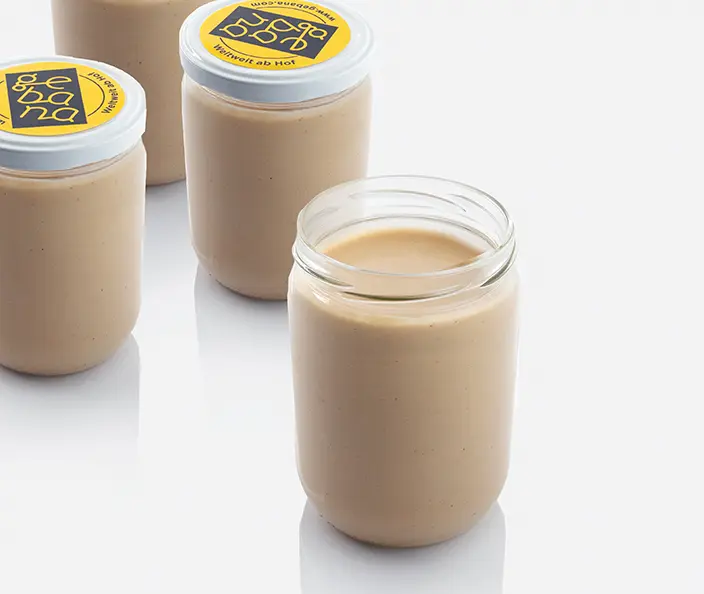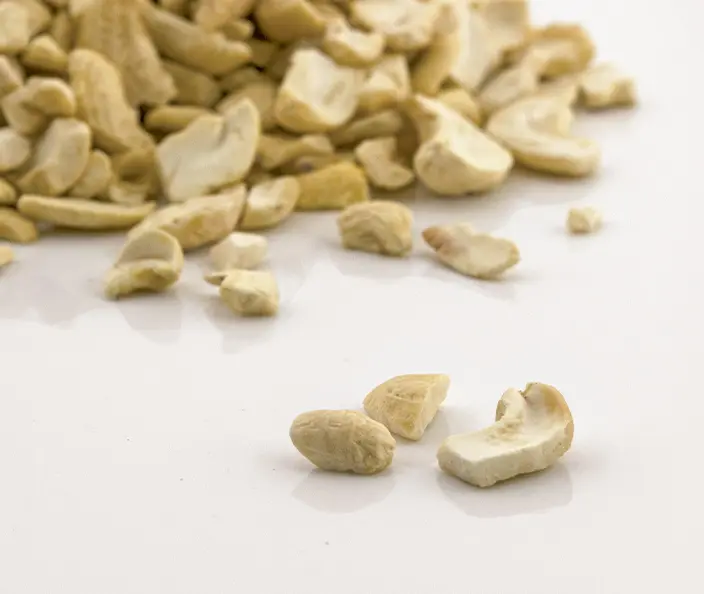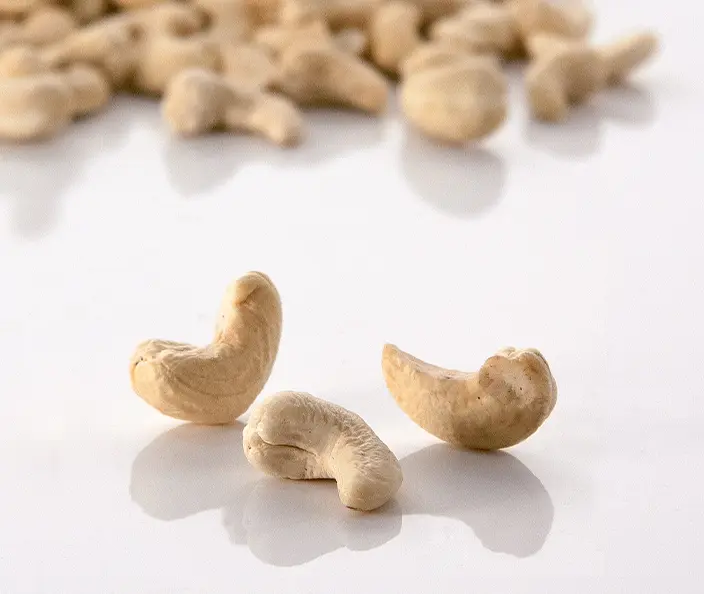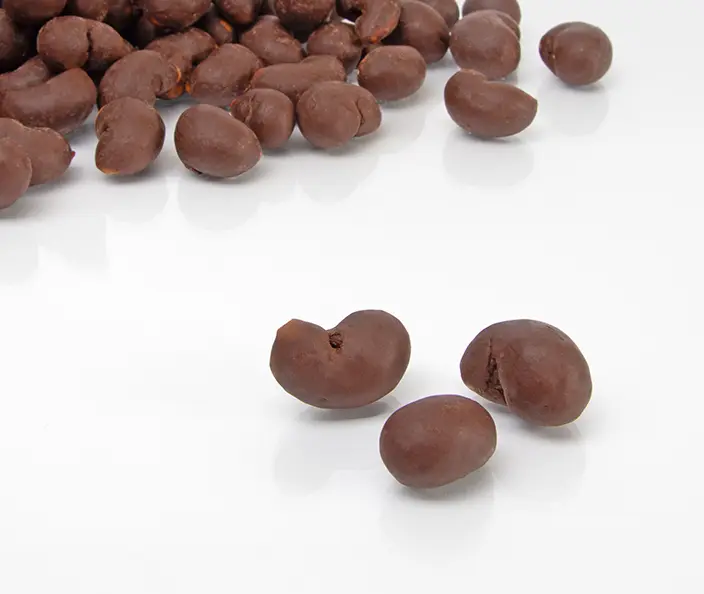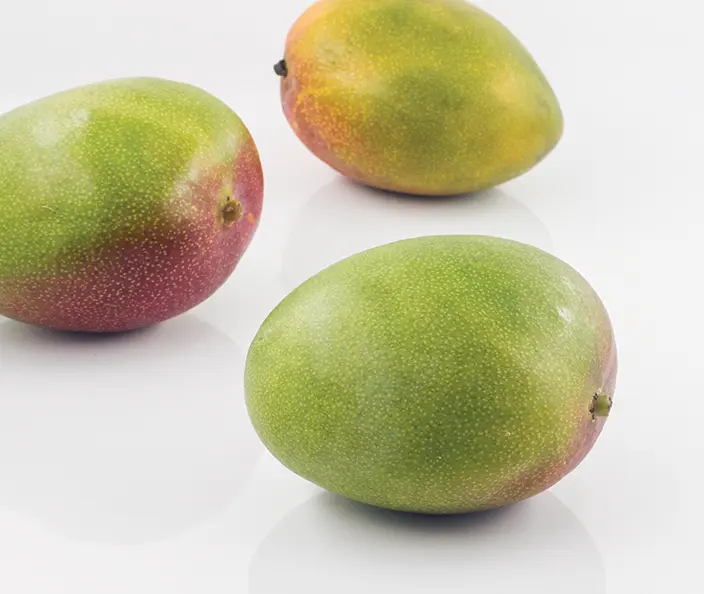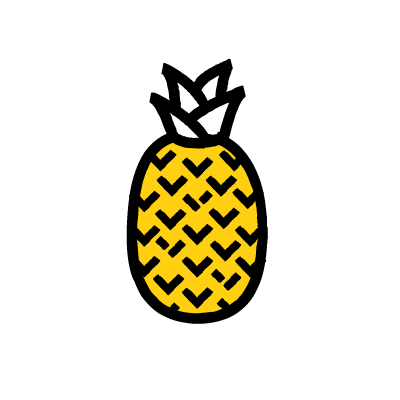Brooks Mango
Organic
Burkina Faso
Dried mango strips from gebana Burkina Faso. Inspected and sorted by hand and packaged in our factory in Bobo-Dioulasso. These slices of the Brooks variety are sweet in taste and have only a little acidity. No sulphur, no added sugar.
 Use & preparation
Use & preparation
- Dried mangos can be used for cooking and baking just like fresh ones. Simply soak them in water for at least 3 hours.
- Thanks to their sweetness, dried mangos are ideal for ice cream, creams or pastries. Try these recipes for homemade mango ice cream on a stick or a layered mango dessert!
- You can also use the fruit for savoury dishes: Pureed mangos make a wonderful addition to salad dressings, dips or hummus. You can also use finely chopped pieces as a fruity addition to salads, especially with rice or soba noodles.
 Storage & shelf life
Storage & shelf life
Dried fruit can be stored at room temperature well past the best-before date in a tightly sealed container away from light. They only become slightly harder after a few months. Before using them for baking or cooking, you can soften fruit that has hardened by placing it in some hot water for a few minutes.
| Nutrition table per 100g | |
|---|---|
| Energy | 1350kJ/322kcal |
| Fat | 2.2 g |
| thereof saturated fatty acids | 0.5 g |
| Carbohydrates | 61.1 g |
| thereof sugar | 59.9 g |
| Protein | 2.9 g |
| Salt | 0.03 g |
Sustainability and supply chain
Producers
Grown by 1603 family farmers on an average of 1.8 ha in the Hauts-Bassins and Cascades Regions in Burkina Faso.
Cultivation
Organic, non-irrigated, manually harvested.
Processing
Manually sorted, never repackaged, all processing done locally.
Purchasing & Logistics
Purchasing from cooperatives and family farmers straight from the farm since 2001.
Transport: straight from the farm to Bobo-Dioulasso by lorry, by lorry to Abidjan, by ship to Rotterdam, by lorry to Switzerland/Germany
Transport: straight from the farm to Bobo-Dioulasso by lorry, by lorry to Abidjan, by ship to Rotterdam, by lorry to Switzerland/Germany
WANZA DJOUMA COULIBALY
FARMER FROM TOUSSIANA, BURKINA FASO
Chemicals lead to diseases. That's why I'm an organic farmer.
"Sometimes our harvest is not enough to cover our own food needs. But you have to look at the positive: as a farmer, you are mostly independent," says Wanza Djouma Coulibaly. She currently works about 10 hectares of land, which is too little, according to her. "I want to become a big mango and cashew producer in the region. And all organic! Growing fruits and nuts organically is better for the environment and our own health. In fact, if I could do any other job, I would become an agronomist!"

Background

A lot of hands are needed to dry mangos
Every year, around 2500 people are involved in drying our mangos from Burkina Faso. We create value where it is urgently needed thanks to external processing.

 Login
Login


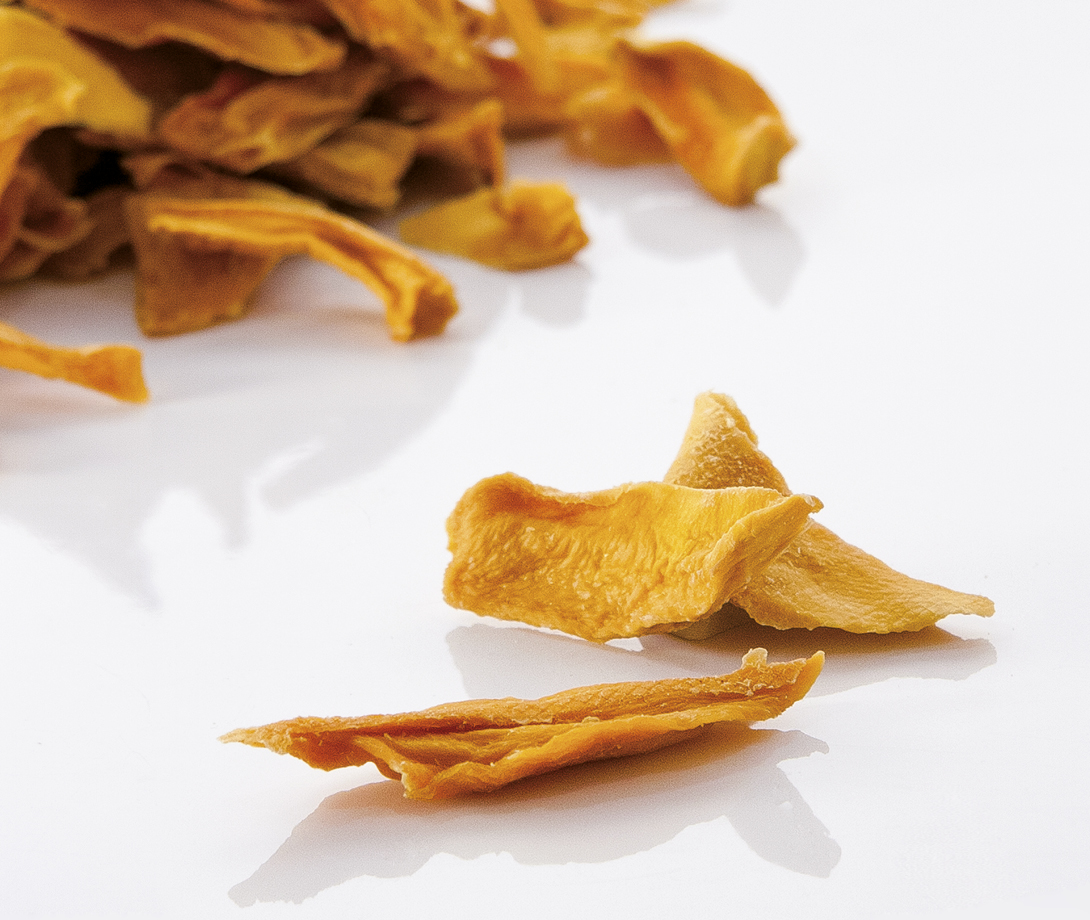
.png?width=3000)
